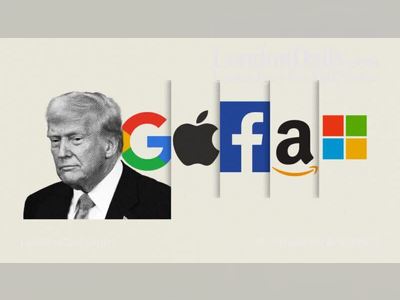Trump Seeks Supreme Court Permission to Remove Fed Governor Lisa Cook
Administration appeals court rulings blocking Lisa Cook’s dismissal over past allegations, citing president’s 'for cause' authority
President Donald Trump has asked the United States Supreme Court to allow him to remove Lisa Cook from her role as Governor on the Board of Governors of the Federal Reserve.
The request comes after lower courts blocked the attempt, citing legal protections and Cook’s due process rights.
Trump’s administration is alleging that Cook committed mortgage fraud before her appointment, in part related to her reporting of two residences (one declared as primary, the other a vacation property), which she contests.
The Justice Department argues these allegations constitute valid cause for removal under the Federal Reserve Act.
In September twenty twenty five, U.S. District Judge Jia Cobb issued a preliminary injunction preventing Cook’s dismissal on grounds that the alleged misconduct predated her service and that Cook was not given adequate notice or an opportunity to respond.
A divided D.C. Circuit Court of Appeals subsequently declined to stay Judge Cobb’s order, affirming that Cook should remain in her position pending further legal proceedings.
The case represents an unprecedented attempt: no president in the Fed’s one-hundred eleven-year history has succeeded in firing a sitting governor of the Federal Reserve.
If the Supreme Court grants the administration’s request, it would mark a profound shift in the balance between presidential authority and central bank independence.
Cook has remained active on the Board, including voting in favour of a recent interest rate cut.
Trump has critiqued Federal Reserve Chair Jerome Powell and pushed for lower interest rates, which many economists believe places pressure on the Fed’s institutional autonomy.
Legal experts note that while the president may remove Fed governors "for cause" under statute, what qualifies as “cause” is not clearly defined by law, particularly for behaviour preceding appointment.
Cook’s legal team and supporters assert her firing would set a dangerous precedent for political interference in monetary policy.
The administration is seeking both an emergency, short-term order that would remove Cook while litigation continues, and a permanent resolution.
The Supreme Court’s decision on this petition could have substantial implications for the Fed’s role, structure, and future independence.
The request comes after lower courts blocked the attempt, citing legal protections and Cook’s due process rights.
Trump’s administration is alleging that Cook committed mortgage fraud before her appointment, in part related to her reporting of two residences (one declared as primary, the other a vacation property), which she contests.
The Justice Department argues these allegations constitute valid cause for removal under the Federal Reserve Act.
In September twenty twenty five, U.S. District Judge Jia Cobb issued a preliminary injunction preventing Cook’s dismissal on grounds that the alleged misconduct predated her service and that Cook was not given adequate notice or an opportunity to respond.
A divided D.C. Circuit Court of Appeals subsequently declined to stay Judge Cobb’s order, affirming that Cook should remain in her position pending further legal proceedings.
The case represents an unprecedented attempt: no president in the Fed’s one-hundred eleven-year history has succeeded in firing a sitting governor of the Federal Reserve.
If the Supreme Court grants the administration’s request, it would mark a profound shift in the balance between presidential authority and central bank independence.
Cook has remained active on the Board, including voting in favour of a recent interest rate cut.
Trump has critiqued Federal Reserve Chair Jerome Powell and pushed for lower interest rates, which many economists believe places pressure on the Fed’s institutional autonomy.
Legal experts note that while the president may remove Fed governors "for cause" under statute, what qualifies as “cause” is not clearly defined by law, particularly for behaviour preceding appointment.
Cook’s legal team and supporters assert her firing would set a dangerous precedent for political interference in monetary policy.
The administration is seeking both an emergency, short-term order that would remove Cook while litigation continues, and a permanent resolution.
The Supreme Court’s decision on this petition could have substantial implications for the Fed’s role, structure, and future independence.









